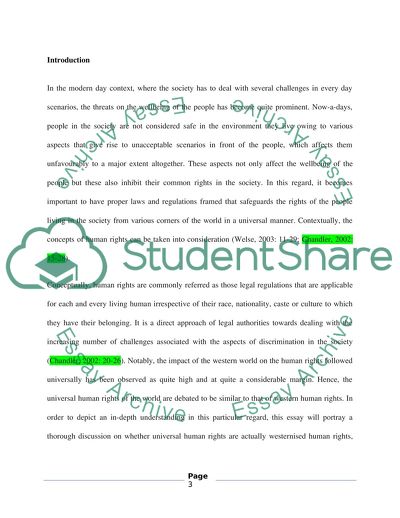Cite this document
(Argument on Whether Universal Human Rights Is Really Western Human Literature review Example | Topics and Well Written Essays - 2750 words, n.d.)
Argument on Whether Universal Human Rights Is Really Western Human Literature review Example | Topics and Well Written Essays - 2750 words. https://studentshare.org/sociology/1814734-universal-human-rights-are-really-western-human-rights-discuss
Argument on Whether Universal Human Rights Is Really Western Human Literature review Example | Topics and Well Written Essays - 2750 words. https://studentshare.org/sociology/1814734-universal-human-rights-are-really-western-human-rights-discuss
(Argument on Whether Universal Human Rights Is Really Western Human Literature Review Example | Topics and Well Written Essays - 2750 Words)
Argument on Whether Universal Human Rights Is Really Western Human Literature Review Example | Topics and Well Written Essays - 2750 Words. https://studentshare.org/sociology/1814734-universal-human-rights-are-really-western-human-rights-discuss.
Argument on Whether Universal Human Rights Is Really Western Human Literature Review Example | Topics and Well Written Essays - 2750 Words. https://studentshare.org/sociology/1814734-universal-human-rights-are-really-western-human-rights-discuss.
“Argument on Whether Universal Human Rights Is Really Western Human Literature Review Example | Topics and Well Written Essays - 2750 Words”. https://studentshare.org/sociology/1814734-universal-human-rights-are-really-western-human-rights-discuss.


